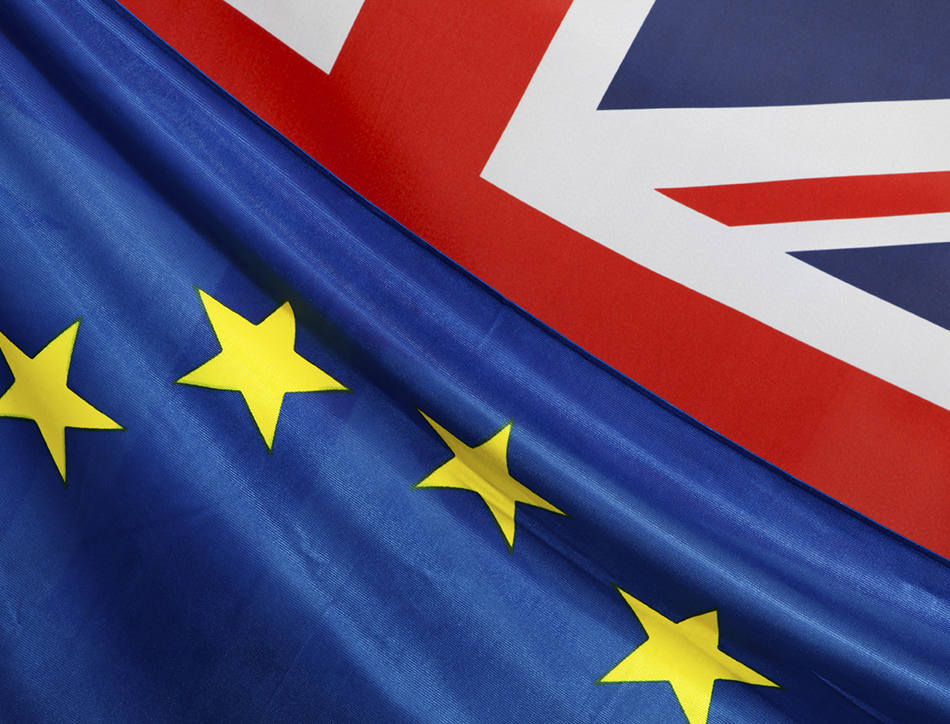On 24 December, the UK and EU reached a deal. Sir Richard Catlow, Vice-President and Foreign Secretary of the Royal Society outlines the implications for research and innovation and looks forward to the next steps and how this sits within the UK’s stated ambition to be a global science superpower.

The 2016 referendum heralded the beginning of a period of uncertainty for scientists. The value of international scientific collaboration and participation in Horizon 2020, the most ambitious multilateral funding scheme in the world, had been recognised by all sides in the debate. But the result put the UK’s future participation into question.
That is why the news on 24 December 2020 that a deal had been struck, including agreeing the terms for UK association to Horizon Europe, the successor to Horizon 2020, was excellent news. The deal also allows the UK access to Euratom Research and Training programme, the fusion test facility ITER, Copernicus and the EU’s Satellite Surveillance & Tracking (SST) services. It should bring about an end to the uncertainty and sets out a path for an ongoing and close scientific partnership between the UK and EU, representing a new chapter in a key scientific relationship.
The UK’s considerable financial commitment to associate and remain a central partner in European research and innovation demonstrates the value that the government places on this international collaboration. It is a huge opportunity for researchers and innovators in the UK to strengthen and build new partnerships and access valuable, world-class programmes, such as the European Research Council and the vitally important multilateral collaborations that Horizon Europe will enable.
It is important that the association agreement is quickly ratified.
The past few years of uncertainty and passionate debate about the UK’s future relationship with the EU have damaged confidence and dented relationships and so speedy ratification of the association deal is really important. Even ahead of this however, we can begin to rebuild valuable partnerships with colleagues working across the EU and further afield. All of us in the science community have a role to play in reaching out to our colleagues overseas and forging new relationships and partnerships going forward. Association secures us access to the programme, but it is now our job to go out there, build collaborations and partnerships and apply for the money that will support research and innovation in the UK, and collaborations with researchers and innovators around the world.
The UK must continue to be a welcoming magnet for talent from all over the world.
While association to Horizon Europe is hugely welcome, we must recognise that the UK has left the EU, which does have some practical consequences that will impact directly on science. The end of free movement means that most EU researchers and innovators who want to come and work in the UK will now need to navigate the visas and immigration system, which adds extra impetus to the important work that is underway to ensure that the UK is an attractive destination for international talent. This includes the cheaper and more flexible Global Talent visa, which the Royal Society was involved in delivering and administers on behalf of the Home Office.
But there is more to be done. Currently the upfront costs of work and study visas for researchers and innovators considering coming to the UK are up to six times higher than the average across leading science nations. The UK must reduce these costs in line with our international competitors. It may also be valuable to review the list of permitted activities that visiting scientists and academics can undertake on short-term trips to the UK. The newly created Office for Talent in Downing Street offers a valuable opportunity to drive this work.
The end of UK association to Erasmus+ is a sad casualty of the deal. Personal experience is very important and can underpin future relationships. Throughout my career I have travelled widely and over the past four years I have had the honour to be the society’s Foreign Secretary. In that role I have visited many countries and have seen first-hand the value of scientific relationships and their role in building international links. We must ensure that the UK remains an attractive destination for people from around the world to study, train and gain experience. We all benefit from this.
Realising the UK’s global ambitions as a responsible and visionary global science superpower.
Science is increasingly global with 55% of UK academic publications the result of international collaboration in 2018, compared with 26% in 1998. The past year has highlighted the benefits of international scientific cooperation: without it, many more people would have died in the pandemic and we would not have vaccines now being delivered. It will also be crucial to addressing future challenges such as climate change, biodiversity loss and new pandemics.
The EU Framework Programmes are the most ambitious multilateral funding schemes in the world, and participation is increasingly global, which provides a perfect platform for building additional scientific collaborations across the globe. The UK can be an active participant in European science as well as being ambitious in creating new bilateral and multilateral deals with leading and established science nations.
To realise this end, UK participation in international scientific collaborations must be a core component of a successful domestic research and innovation strategy. We must maintain the UK’s excellence in cutting edge basic science as well as fostering innovation, replacing valuable programmes that the UK can no longer access such as the EU Structural funds. The new UK Shared Prosperity Fund for instance, which will replace EU structural funds, can play a valuable role in supporting the UK’s innovation landscape in the future. And we must seek ambitious new deals with established and emerging science nations around the world, as well as continue to foster the growth of scientific expertise in the developing world.
Finally, the costs of association to Horizon Europe must be covered by additional funding to that already committed to building the UK’s domestic and global strength in research and innovation. The government’s commitment to increase public funding for R&D to £22 billion per year by 2024 to 2025 is crucial to delivering growth and productivity across the UK, upon which we build our international collaboration. To secure the long-term health of the research and innovation system, the UK should be seeking to increase overall investment in R&D to 3% of GDP.
This article appears in the Spring issue of Science in Parliament and is posted here by permission of the Parliamentary & Scientific Committee, publishers of Science in Parliament. If you would like to find out more about the Committee or subscribe to the magazine, please contact office@scienceinparliament.org.uk.




